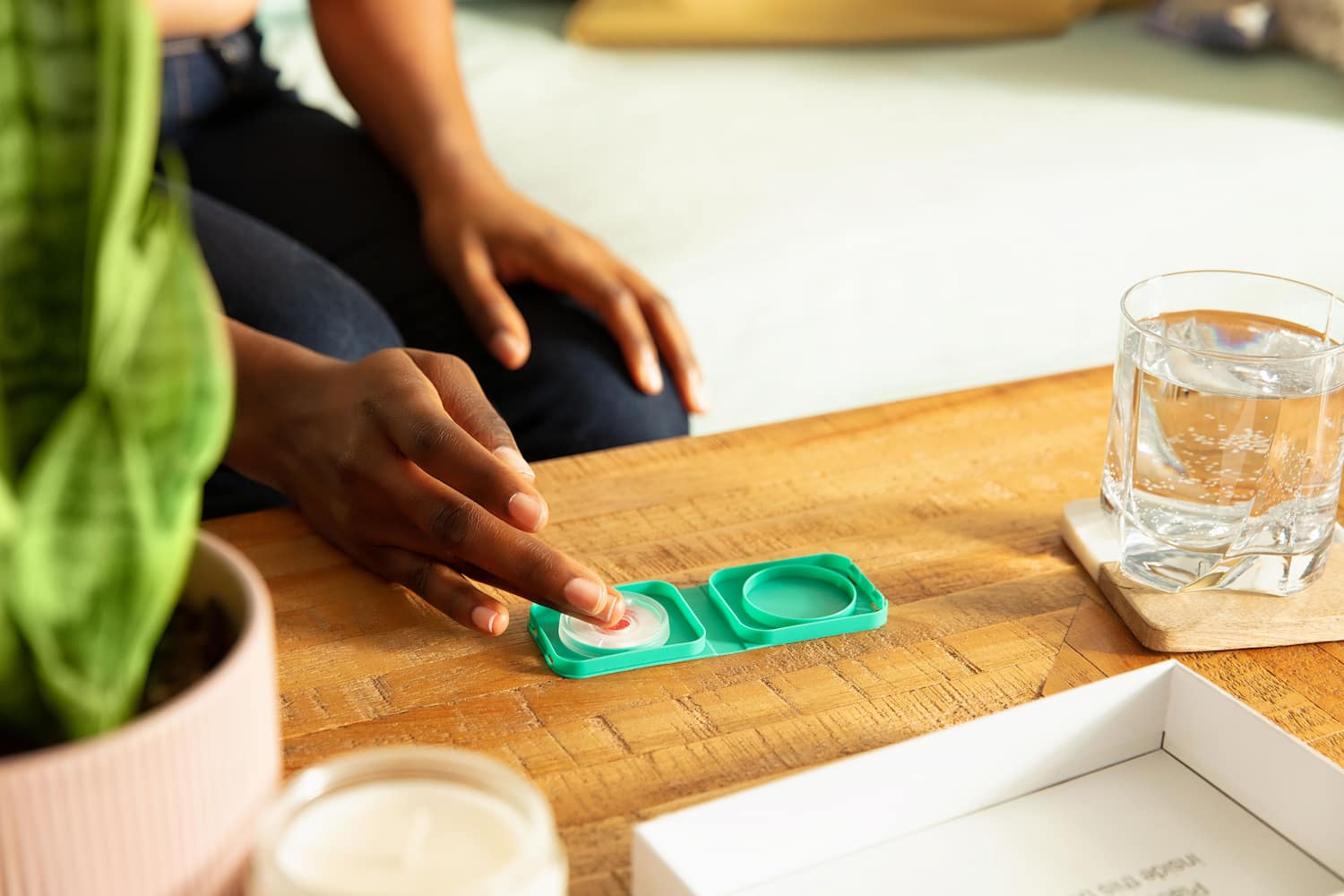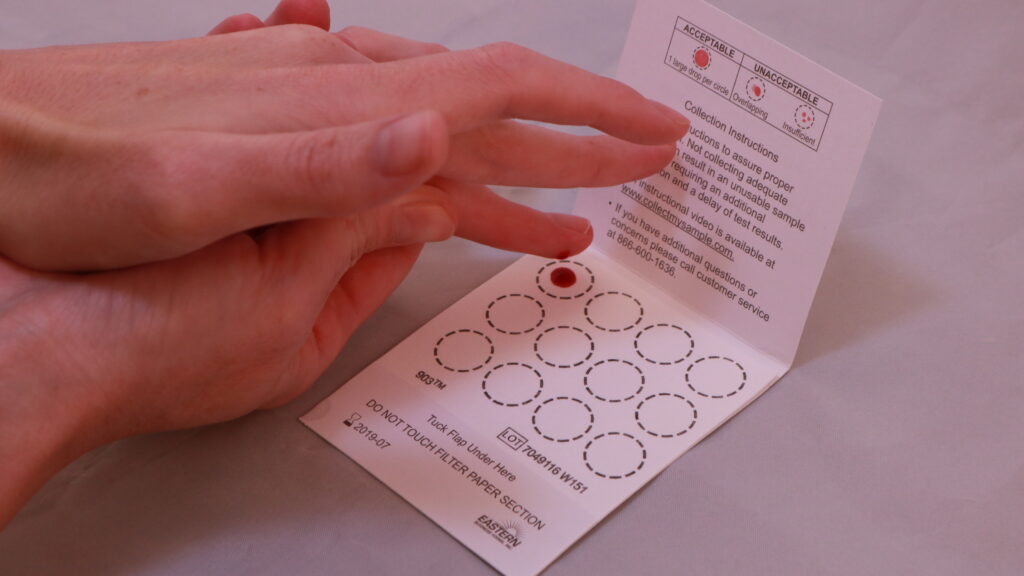At-Home Blood Tests: A Guide to Convenient Health Monitoring

In today’s fast-paced world, people are increasingly seeking convenient and accessible ways to monitor their health. At-home blood tests have emerged as a popular solution, offering individuals the ability to track key health markers from the comfort of their own homes.
In this comprehensive guide, we will explore the benefits, types, selection process, preparation, execution, accuracy, interpretation, monitoring of chronic conditions, tracking of markers, safety precautions, and the importance of consulting healthcare professionals based on at-home blood analysis results.
Benefits of At-Home Blood Tests

At-home blood tests provide numerous benefits to individuals who prioritize their health and well-being. Firstly, they offer convenience by eliminating the need to visit a medical facility for routine blood tests. This saves time and allows individuals to fit monitoring into their busy schedules. Additionally, at-home blood test Dubai provide privacy, allowing individuals to conduct tests in a comfortable and familiar environment.
There is a wide range of at-tests available, each designed to monitor specific health markers or conditions. Some common types include analysis for cholesterol levels, blood sugar levels, vitamin deficiencies, hormone levels, and markers for conditions such as thyroid disorders or sexually transmitted infections. Understanding the purpose and scope of each analysis is crucial in selecting the most relevant options for individual health monitoring needs.
Choosing the Right Kit
Selecting the right at-home blood test kit is essential to ensure accurate and reliable results. When choosing a kit, consider factors such as the reputation and credibility of the manufacturer, the quality of the materials included, the comprehensiveness of the test, and any additional features or services offered, such as online result interpretation or consultation with healthcare professionals.
Preparing for an At-Home Blood Test

Proper preparation is key to obtaining accurate results from an at-home blood test. This typically involves following instructions provided with the kit, which may include fasting for a specific period before the test, avoiding certain medications or supplements, and ensuring proper hygiene and cleanliness of the testing area and equipment.
Step-by-Step Guide
Executing an at-home blood test requires meticulous attention to detail and a steadfast commitment to following the provided instructions. By carefully adhering to the specified steps, individuals can ensure accurate and reliable results.
The typical process involves collecting a blood sample through a finger prick or using alternative methods outlined by the kit. It is crucial to handle and store the sample with care, ensuring its integrity, and properly packaging it for safe transportation back to the laboratory. These meticulous actions contribute to the overall reliability of the results.
Ensuring Accuracy and Reliability
Accurate and reliable results hold paramount significance when it comes to monitoring one’s health through at-home blood tests. To achieve such precision, it is imperative to meticulously follow the instructions provided with the kit, ensuring every step is executed with care.
This entails paying close attention to proper sample collection techniques, adhering to specified storage conditions, and following any transportation guidelines outlined by the manufacturer. Furthermore, individuals can bolster result reliability by opting for reputable kits from trusted manufacturers, as their commitment to quality can further enhance the accuracy and dependability of the obtained results.
Interpreting Results
Interpreting at-home blood test results requires an understanding of the reference ranges and values provided by the kit. These values indicate whether the measured health markers fall within normal ranges or if there are any potential concerns. While some kits offer result interpretation directly to the user, it is essential to consult healthcare professionals for a thorough analysis and proper guidance based on the results.
Monitoring Chronic Conditions

For individuals living with chronic conditions, at-home blood tests can serve as a valuable tool for monitoring their health and treatment progress. The regular analysis allows individuals to track changes in key health markers, such as blood glucose levels for diabetes management or cholesterol levels for cardiovascular health. By closely monitoring these markers, individuals can make informed decisions about lifestyle changes, medication adjustments, and overall disease management.
Tracking Key Health Markers
Even for those without chronic conditions, tracking key health markers through at-home blood analysis can provide valuable insights into overall well-being. Tests for vitamin deficiencies, hormone levels, or markers of inflammation can help identify areas of concern and guide individuals toward adopting healthier habits or seeking appropriate medical intervention when necessary.
Safety Precautions and Hygiene Practices
Maintaining proper safety precautions and hygiene practices is crucial when performing at-home blood tests. This includes ensuring a clean and sanitized testing area, using sterile equipment provided in the kit, and following the recommended disposal methods for used materials. By prioritizing safety and hygiene, individuals can minimize the risk of contamination and ensure accurate results.
Consulting with Healthcare Professionals Based on Results
While at-home blood tests provide valuable insights, it is essential to remember that they are not a substitute for professional medical advice.
Consulting healthcare professionals, such as doctors or registered nurses, is vital for the proper interpretation of the results and for obtaining personalized guidance based on individual health needs. Healthcare professionals can provide valuable context, recommend additional analysis or treatments if necessary, and assist in formulating an appropriate health management plan.
Exploring the Future of At-Home Blood Testing: Innovations and Advancements

As technology continues to advance, the field of at-home blood testing is evolving rapidly. This subheading delves into the exciting developments and future prospects of at-home blood analysis. It explores emerging innovations such as wearable devices, smartphone applications, and artificial intelligence-driven analysis.
Additionally, it highlights potential advancements in test accuracy, accessibility, and the expanding range of health markers that can be monitored from home. Understanding the future landscape of at-home blood analysis can empower individuals to stay informed and take advantage of upcoming advancements in convenient health monitoring.
Conclusion
At-home blood tests can be a convenient way for people to monitor their health without having to visit a doctor. These tests provide detailed information about your health that can help you detect potential problems early and make the necessary lifestyle changes to stay healthy.
With so many different types of at-home blood analysis available, there is sure to be one that meets your needs, no matter what type of results you are looking for. So if you want an easy way to take control of your own health, consider investing in an at-home blood analysis today!




